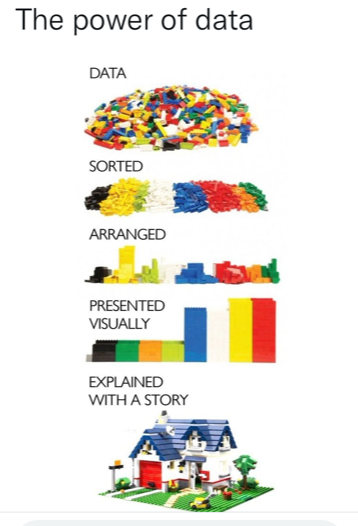Statistics and Stories
This little beauty below caused quite a stir on social media last week. It is actually not new and the original source can be found at
https://twitter.com/alvinfoo/status/1431458670684954629?s=21
It really resonated with me. Over the past number of years, the collecting and analysis of data has been a dominant feature of Scottish Education.
In my professional experience, we moved from a situation where we were quite honestly data poor but, in our quest, to become data rich, we actually became data obsessed. The main issue is that the definition of data seems to be only that which can be measured, that which can be counted and worse of all that which can be used to draw often spurious comparisons with other children, other departments, other subjects, other schools and other local authorities and indeed other countries.
The basic problem with this narrow b=view of data is that we ignore context, we ignore experiences and we pay no attention to culture.
With this narrow obsession we have forgotten that data is far wider than mere numbers, scores and graphs. We have forgotten that together with statistics it is important to listen to the narratives, to gather the stories, collect the rich data about progress and achievements behind the numbers.
Who has this data? Where could we find it - we could always be very bold and ask those at the heart of teaching and learning. Talk to teachers - what stories do they tell about the progress of children in their care? Talk to families - they can easily relate experiences and give examples and evidence of improvement and progress in their children. Ask children and young people and they will be honest about their achievements and about their next steps and challenges. The level of sophistication often shown never fails to amaze. Statistics have their place - they are useful when presenting information and for sharing attainment. However, we must accept that they are never the full picture.
The amount of rich hidden data has to be mined - it has to found and presented. In doing so, we will widen the range of voices listened to in the system, we will widen access to further learning and have the opportunity to celebrate the achievements of children and young people across the board.

